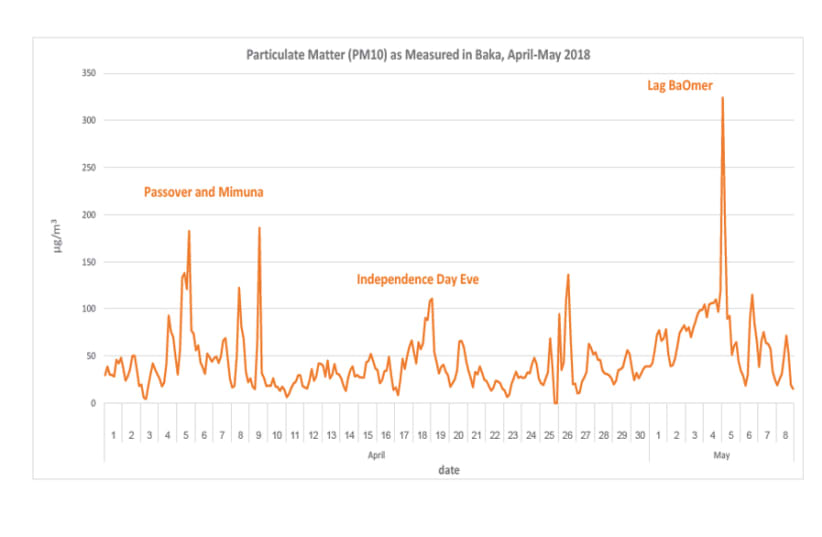Using the website of the Environmental Ministry’s Air Quality Monitoring System, we checked the air quality data for Lag Ba’omer 2018. On ordinary days, the respirable particulates whose diameter is 2.45 to 10 microns veer between 0 to 50 micrograms per cubic meter of air, but on Lag Ba’omer evening, the reading at the Efrata School in Jerusalem’s Baka neighborhood was 324 micrograms per cubic meter, more than a six-fold increase. At the same time, it seems that the smoke, at least last year, vanished as quickly as it arrived, and the extreme value recorded lasted for only a few hours. (We checked three-hour averages). It therefore comes as no surprise that those who suffer from respiratory difficulties are advised to stay indoors on Lag Ba’omer.
Lag Ba’omer is celebrated after about a month that abounds with fires of various kinds. It starts with the burning of chametz (leavened food) on Passover eve, and continues with barbecues during the week of Passover, and Mimouna the day after Passover (186 micrograms of particulate patter were recorded in 2018). The fires continue on Independence Day (111 micrograms per cubic meter) which – in addition to the fireworks – boasts traditional celebratory barbecues.
The amount of smoke could easily be reduced, as could the suffering of those with respiratory problems if people chose, for example, to make smaller fires (which would also be much safer), or to share one fire among several groups of picnickers.
Hope you had a happy Lag Ba’omer!
Translated by Gilah Kahn-Hoffmann.
The writer is a researcher at The Jerusalem Institute for Policy Research.
